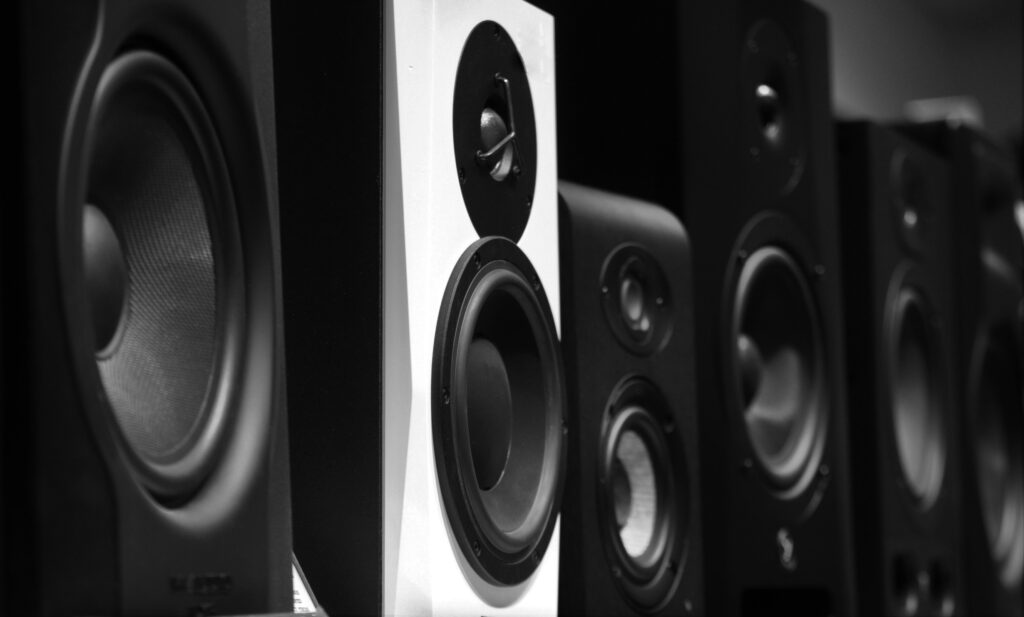
Bass speakers are crucial for producing low-frequency sounds that enhance your audio experience. This guide focuses on how to choose the best bass speakers. Achieving optimal audio quality heavily relies on understanding and optimizing the bass output. The mid-bass, responsible for lower mid-range frequencies, contributes significantly to creating a rich sound profile.
Factors Affecting Bass Quality
- Speaker Design: The design of bass speakers plays a pivotal role in determining the clarity and depth of the produced bass.
- Power Handling Capabilities: Ensuring that your speakers can handle sufficient power is essential for delivering impactful bass without distortion.
Incorporating high-quality bass speakers with suitable power handling capabilities into your audio system can elevate your listening experience significantly, providing deep and resonant lows while maintaining overall sound balance.
Factors to Consider for Bass Performance
Power Handling Capacity
The speaker’s power-handling capacity is crucial for bass performance. It determines how much power the speaker can handle without getting damaged. For better bass, choose speakers with a higher power handling capacity.
Choosing speakers with a high power handling capacity ensures they can handle more power, resulting in louder and clearer bass.
Speaker Sensitivity
Speaker sensitivity affects how efficiently the speaker converts power into sound. A higher sensitivity rating means the speaker requires less power to produce sound effectively, impacting bass output positively.
Selecting speakers with high sensitivity ratings ensures efficient conversion of electrical energy into sound waves, enhancing overall bass performance.
Comparing Top-Rated Speakers for Deep Bass
Factors to Consider
When choosing the best bass speaker, it is crucial to look at the frequency response range and sensitivity ratings. A wider frequency response range allows for deeper bass, while higher sensitivity ratings indicate louder sound output.
Customer reviews and expert opinions play a vital role in guiding your decision-making process. They provide valuable insights into real-world experiences with the speakers’ performance, durability, and overall quality.
Optimizing Impedance for Powerful Bass
Importance of Matching Impedance
Matching the impedance of your speakers to your audio system is crucial for maximizing bass performance. Lower impedance speakers typically deliver more powerful bass, enhancing the overall listening experience in your vehicle.
Selecting speakers with an impedance that complements your amplifier ensures efficient power transfer, resulting in a louder and clearer sound output. It’s essential to check the specifications of both your audio system and speakers to find the optimal impedance level for achieving impressive bass quality.
Considerations for Optimal Bass Output
Consulting the technical details provided by manufacturers can guide you in determining the ideal impedance range suitable for your setup. For instance, if you have a high-impact bass preference, choosing speakers with lower impedances like 2 ohms could provide the extra punch you desire.
Moreover, understanding how different impedances interact with various amplifiers can help prevent issues such as overheating or distortion. By selecting speakers that align with your amplifier’s capabilities while offering wide frequency response ranges and impressive power handling, you can enjoy rich bass tones without compromising on audio clarity.
Choosing the Right Size and Type for Optimal Bass
Speaker Size Impact
The size of speakers directly affects how accurately they can produce low-frequency sounds. Larger speakers, like 6×9-inch or 12-inch subwoofers, excel in reproducing deep bass tones. These sizes are known for their ability to deliver accurate bass across various music genres.
Consider the available space when deciding on speaker size. If you prefer a more pronounced and powerful bass response, opting for larger speakers is advisable. However, if space is limited or you seek a balanced sound output, smaller-sized speakers might be more suitable.
Sound Deadening Materials
Sound-deadening materials are essential when upgrading or choosing speakers for accurate bass reproduction. For instance, applying these materials can prevent sound distortion caused by vibrations. This simple step can make a noticeable difference in the overall sound quality of your audio system.
Upgrading Other Components
Apart from installing high-quality speakers, upgrading other components like the amplifier or head unit can also enhance bass performance. A powerful amplifier ensures that your new speakers receive adequate power for optimal sound reproduction, including deep and rich bass tones. Similarly, a high-quality head unit with advanced equalization settings can further improve the accuracy and depth of the bass output.
Final Remarks
The quest for choosing the best bass speakers and their optimal bass performance demands a thorough understanding of key factors like material, impedance, and speaker size. By comparing top-rated speakers and focusing on installing high-quality components, enthusiasts can achieve superior bass output. The significance of these considerations cannot be overstated in the pursuit of the best bass speaker and a rich audio experience.
